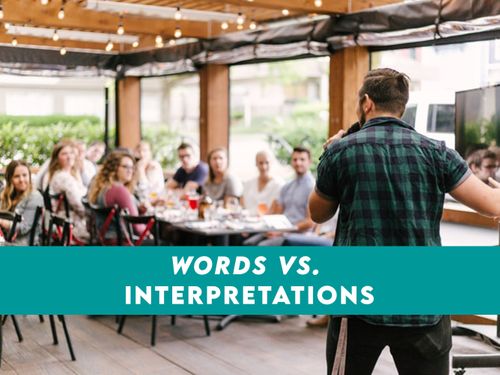How what you say and what people hear may be total opposites
Apr 05, 2022 · 2 mins read
0
Share
As a career and communication coach, I am all too familiar with the bad speaking habits people do not even realize that they have. For example, I heard one Sales Manager say the phrase "a little bit" 10 times in a 5 minute conversation.
Save
Share
If you've never recorded and listened to yourself speak, I highly recommend it. It is critical to be aware of the impact of your words. You must first be aware of your counterproductive speaking habits before you can change them.
Save
Share
Take the word "just" for example. When you say "I'm just checking in to see if you have reviewed my proposal"... Phrases like "kind of", "sort of" all diminish your intent and imply you're a bother. They prime your listener with the idea that you're intruding on them in some way.
Save
Share
Certain cultures build rapport with diminutive, permission seeking, phrases like "can I ask you a question" and "would it be alright if", etc. However in most Western Culture (North American in particular) this type of dialogue will break the even playing field of conversation.
Save
Share
The biggest concern about this power discrepancy is that dismissive or self-deprecating phrases make being seen as confident, charismatic and authoritative nearly impossible. If your goal is to build trust, make a sale or lead, it is counterproductive to diminish yourself.
Save
Share
When you say "I just want to see if you might be interested in..." What expectations are you setting? A phrase like this may turn people away simply because you have primed them to do so. Your implication that they probably will not be interested prepares them for precisely that.
Save
Share
I watched a commercial banking firm lose millions of dollars on a potential deal in 5 minutes simply because of poor word choices. The company they pitched to responded with the exact words: "I can't put my finger on it, but I don't feel confident in this."
Save
Share
Subconsciously, people respond to words, confidence and expectations just as much or more than speaker intent.
Save
Share
You can have the best intentions, motivations and methods, but if your words do not portray those well, your message may be dismissed altogether.
Save
Share
There's no 100% foolproof way of ensuring that your intentions and words are always understood the way you intend them. However, the best you can do is choose your words carefully and ensure that none of the phrases you use undermine your intentions and confidence.
Save
Share
0
